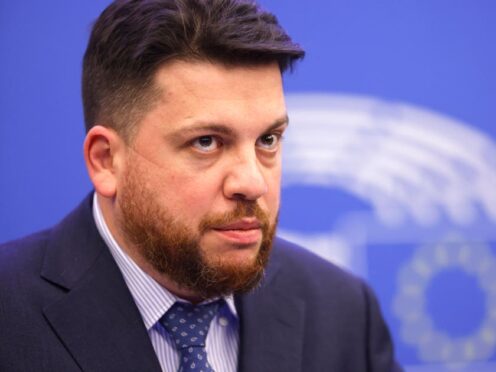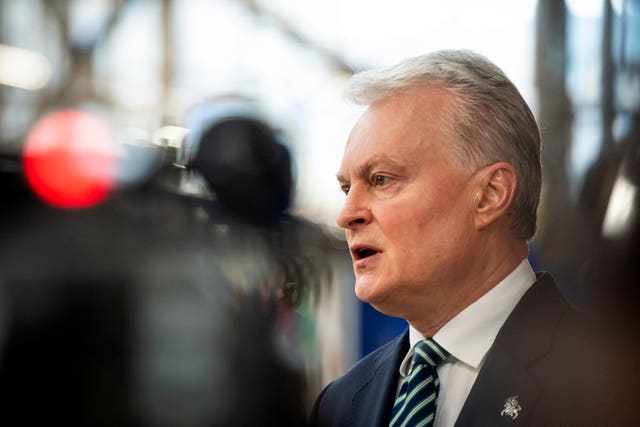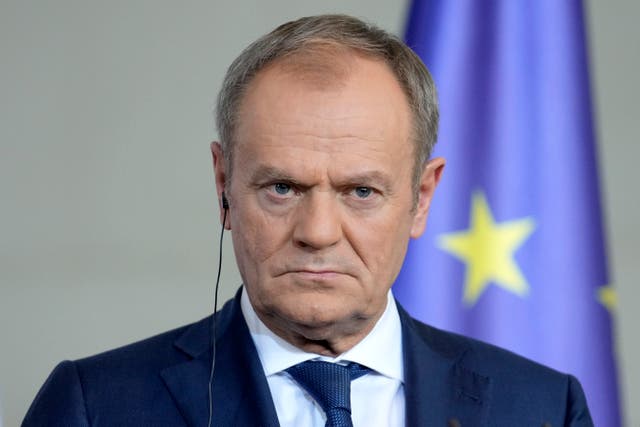
Two men have been detained in Poland on suspicion that they attacked Russian activist Leonid Volkov — an ally of late opposition leader Alexei Navalny — on the orders of foreign intelligence services, officials said.
Polish Prime Minister Donald Tusk later said on social media that the two Polish “assassins” are under arrest, as well as a Belarusian working for Russia who had ordered the Poles to “assassinate” a Navalny associate. He said the Poles were linked to extremist football fan groups.
Mr Volkov was attacked on March 12 outside his home in the Lithuanian capital Vilnius, where he lives in exile. The attacker smashed one of his car’s windows, sprayed tear gas into his eyes and hit him with a hammer, police said.

Lithuanian President Gitanas Nauseda announced the arrest of two people to reporters in Vilnius and thanked Poland for its work.
“Two people have been detained in Poland on suspicion of beating Russian opposition leader Leonid Volkov. I thank the Republic of Poland for the excellent work it has done. I have discussed this with the Polish president and thanked them for their excellent co-operation,” Mr Nauseda said.
Both suspects are Polish citizens previously known to police in their homeland. They travelled to Vilnius before the attack on Mr Volkov and returned to Warsaw afterwards, according to Lithuania’s deputy police chief Saulius Briginas.
He said they were detained on April 3 in an operation in which Lithuanian police participated.
Lithuania expects them to be handed over in May, chief prosecutor Justas Laucius told reporters. If convicted on charges of causing bodily harm, they face up to three years in prison.
In Poland, Joanna Adamowicz, the spokesperson for a Warsaw court, said the two men were put under arrest until May 13, on suspicion that “they had organised on the territory of the Lithuanian Republic an assault and caused damage to the health of (a) Russian citizen”, while “being active in an organised group and carrying out the orders of the special services of an alien country”.

The court in Warsaw’s Praga district has decided to hand them over to Lithuania for a criminal investigation, on the condition that they would serve any potential punishment in Poland, Ms Adamowicz said.
Their lawyers have lodged complaints and the files have been sent to the Appeals Court in Warsaw, she said.
Poland’s Central Investigation Bureau of Police confirmed that its officers worked with Lithuanian police to arrest two people suspected of an attack on a Russian opposition activist in Lithuania in March.
The developments came a day after Poland announced the arrest of a Polish man suspected of being ready to spy on behalf of Russia’s military intelligence in an alleged plot to assassinate Ukraine’s President Volodymyr Zelensky.
“There will be no leniency whatsoever for collaborators of the Russian services,” Mr Tusk said, referring to both cases.
Mr Volkov said on social media that he did not know the details of the arrest, but “saw how energetically and persistently the Lithuanian police have worked over the past month on this case” and was “very glad that this work has paid off”.
Thanks a lot, Mr. President. And great thanks to Lithuanian and Polish law enforcement agencies for the tremendous work they’ve done.
It is of enormous importance to investigate and to expose all the chain-of-command from Putin to the guy with the hammer. https://t.co/Yai5DLqEN3
— Leonid Volkov (@leonidvolkov) April 19, 2024
“As for the details, we will find them out soon. Can’t wait to find out!” he added.
He suffered a broken arm in the attack. He accused Russian President Vladimir Putin’s “henchmen” at the time and vowed to keep up his opposition work.
The attack took place nearly a month after Mr Navalny’s unexplained death in a remote Arctic penal colony. He was Russia’s best-known opposition figure and Mr Putin’s fiercest critic.
Mr Navalny had been imprisoned since January 2021 and was serving a 19-year sentence on charges of extremism widely seen as politically motivated.
Opposition figures and western leaders laid the blame on the Kremlin for his death — something officials in Moscow rejected.
Mr Volkov used to be in charge of Mr Navalny’s regional offices and election campaigns. He ran for mayor of Moscow in 2013 and sought to challenge Mr Putin in the 2018 presidential election. He left Russia several years ago under pressure from the authorities.

Enjoy the convenience of having The Sunday Post delivered as a digital ePaper straight to your smartphone, tablet or computer.
Subscribe for only £5.49 a month and enjoy all the benefits of the printed paper as a digital replica.
Subscribe